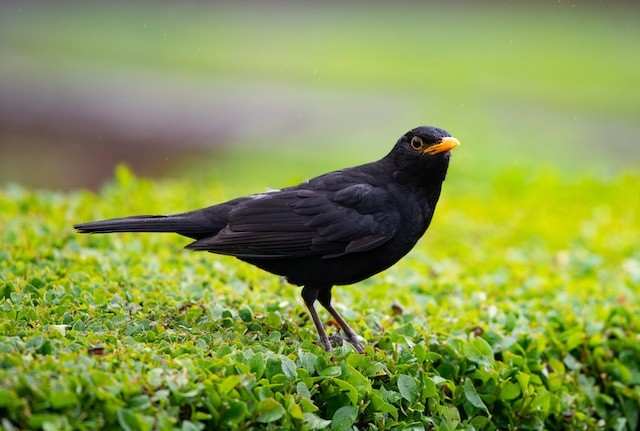Blackbirds are common songbirds that can be found in many parts of the world. They are known for their melodious and varied songs, as well as their adaptability to different habitats and climates.
Like any other living creature, blackbirds can also get sick and experience symptoms such as fever, inflammation, and fatigue.
A recent study by a team of biologists from Lund University in Sweden has investigated this question by tracking the movements of wild Eurasian blackbirds in relation to their health status.
Health and activity of wild blackbirds

The study, reported in the Proceedings of the Royal Society, involved capturing 45 wild Eurasian blackbirds from a park in Lund, Sweden.
The researchers attached tiny accelerometers to their backs, which recorded their movements every second for 48 days.
The accelerometers were designed to fall off after this period and could be retrieved by the researchers using radio signals.
The researchers then injected half of the birds with lipopolysaccharide, a compound that mimics bacterial infection by triggering an immune response.
The other half of the birds received a saline solution as a control.
The birds were then released back to the park, where their movements were monitored using the accelerometers.
The researchers were interested in how the birds' health status affected their daily activity period, which is the time between sunrise and sunset when they are active and foraging.
They also wanted to see how their activity varied throughout the day, especially around dusk, when they usually return to their roosting sites.
Research findings and their significance
The researchers were able to recover 22 accelerometers from the birds, 10 from the infected group and 12 from the control group.
They analyzed the data and found that the infected birds had a significantly shorter daily activity period than the control birds.
This distinction, however, was only noticeable at dusk, as the infected birds began to sleep an hour earlier than usual. They continued to be as active as the control birds for the rest of the day.
The researchers explained that this behavior could be an adaptive strategy to cope with illness and conserve energy.
By resting earlier at dusk, the infected birds could avoid exposure to predators and parasites, as well as reduce heat loss and metabolic costs. They could also allocate more resources to their immune system and recovery.
Although the effects of lipopolysaccharide had long since worn off, the researchers also discovered that this behavior remained for over three weeks following infection.
They suggested that this could be due to residual inflammation or damage caused by the immune response, or due to habituation or learning.
The researchers noted that their study was conducted during a period of low environmental stress for the birds, after breeding and before winter.
They speculated that if the infection occurred during more challenging times, such as during breeding or migration, the effects on their activity and survival could be more severe.
The study provided new insights into how wild birds cope with illness and infection. It also highlighted the importance of considering health status as a factor that influences animal behavior and ecology.
The researchers hoped that their findings will inspire more research on how disease affects animal behavior in different contexts and environments.
© 2026 NatureWorldNews.com All rights reserved. Do not reproduce without permission.





